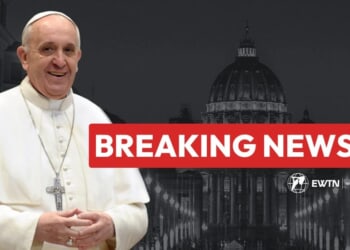Scarlett Maguire is a pollster, and founder of Merlin Strategy.
As we return to work after the Easter bank holiday, we may be witnessing the potential resurrection of centre-left parties across the Anglosphere.
Just a few months ago, right-wing parties around the world appeared to be in the ascendancy, fuelled by a global backlash against progressivism that saw Donald Trump return to the White House. The Canadian Conservatives were 20 points ahead in the polls; the Coalition in Australia looked able to unseat a first-term Labor government; and New Zealand’s most right-wing government in decades still led the opposition in the polls.
Here in Britain, Reform UK had close to doubled their polling performance in the six months since July’s general election.
Now, as we approach Trump’s 100th day in the Oval Office, social democrats have been given a new burst of energy. The 47th President’s tariffs policies, interest in expansionism, and even claims about who split the first atom, have all given centre-left politicians a rare opportunity to play the patriot and flirt with nationalist messaging to which they have previously seemed allergic.
Conservative-minded voters in the wider Anglosphere, who might have found some of Trump’s policies appealing, are now being presented with a choice between ideology and country, and are perhaps unsurprisingly opting for the latter.
Much has already been written about the Canadian Liberals’ astonishing reversal in fortunes and the plight of Pierre Poilievre’s Conservatives, who recently looked so unstoppable that Justin Trudeau felt forced to resign as prime minister. In the few months since, Trump’s attacks on Canada for being “one of the nastiest countries” and his talk of making it the ‘51st state’ have left an indelible mark on the Canadian electorate, with two-thirds now saying they consider the US to be unfriendly or an enemy.
Mark Carney, the new Liberal Party leader, has taken advantage of this seismic shift in public sentiment, vehemently attacking Trump. Carney now pledges to dramatically increase military spending in order to protect against “America’s threats to our very sovereignty” if he wins the election. Meanwhile Poilievre, whilst distancing himself from Trump and other figures on the American right, has struggled to adjust to this new paradigm, and has been unable to land attacks on the Liberals with the public so focused on the external threat of an expansionist USA.
Although the Conservatives may still win the election, a significant number of voters previously tempted by his pitch now going elsewhere, with the party dropping ten points in the polls. At the same time, a number of voters previously opting for more progressive parties to the left of the Liberals have rallied around Carney, with rival left-wing parties seeing their combined voting intention squeezed from 32 per cent to 17 per cent.
Trump is also emerging as a surprise third candidate in the upcoming Australian federal elections. Anthony Albanese, the embattled Labor prime minister, endured an extremely rocky 2024; there was even speculation that we were about to see the first defeat of a one-term government in the country since 1931.
He, like Carney in Canada, has hit back at Trump’s tariffs, calling them “unwarranted” and saying “this is not the act of a friend”. Albanese has also tried his hand at a tentative nationalist message, stating that “Australia will always respond by defending our national interest,” and pledged large sums of money to affected domestic sectors including farming should he be re-elected.
This appears to be working: Australians’ trust in America is now rapidly declining, and Labor has recorded its highest levels in the polls in 18 months.
Meanwhile, Trump’s policies have proved so unpopular with the Australian electorate that after being labelled ‘DOGE-y Dutton’, the Liberal (Australia’s centre-right party) leader, who had previously emulated some of Trump’s agenda, was forced to u-turn on a policy that would have required government workers to go back to the office. Indeed, voters have increasingly voiced concerns that Dutton may be “too much like Trump”, and given him his worst satisfaction rating to date.
The President’s tariffs are also looming large over New Zealand’s already beleaguered economy and political debate. A year prior to Trump’s election, New Zealand elected its most conservative government in decades, with a three party coalition between the National Party (centre right), ACT (classical liberal), and NZF (nationalist).
Now, despite no conservative government ever failing to win a second term and no prime minister ever being replaced via a coup in their first, there are already rumours that Christopher Luxon may be a ‘dead man walking’.
Whilst Luxon has mounted a fierce defence of free trade, Winston Peters, the leader of the Trumpian NZF, has begun to publicly criticise his response. The Labour Party will be looking to exploit this discord; it has already led the National party in four polls since the beginning of the year, and their leader Chris Hipkins is neck-and-neck with Luxon on the crucial question of who would make the best Prime Minister.
On the surface, things look a little different in the UK. Whilst Sir Keir Starmer has seen a slight improvement in his personal ratings since the beginning of the year, they remain low by historical standards. The Conservatives have stood still since their worst election defeat in history, but Nigel Farage’s Reform has seen by far the biggest increase in voting intention polls since July’s election, and look set to cause both traditional main parties a serious headache on the 1st May.
However rather than continuing to climb, Reform’s progress has been holding steady at around 25 per cent since January. Could hardening attitudes towards Trump’s America be stalling their momentum?
Having previously emphasised his close relationship with the President, Farage is now seeking to distance himself, especially on tariffs. In the past week he even compared Trump’s economic policy to the now infamous Truss minibudget, saying: “I think Trump did too much too soon, rather like Liz Truss did a couple of years ago.”
That being said, Farage is facing less political pressure to define himself against Trump than some of his international counterparts, as the UK’s Labour government has been much more hesitant to publicly criticize the controversial President.
Sir Keir Starmer has made a point of being less adversarial than the likes of Carney and Albanese, and has alleged that he “likes and respects” Trump ahead of a rumoured state visit in September. This has limited Labour’s ability to exploit Farage’s Trump connections at a time when they could pose a heightened danger to Reform’s standing with the electorate.
Back in January there was a palpable sense of excitement amongst the various international right-wing politicians who had descended on the DC for the inauguration. In the wake of Trump’s victory there was much talk of a global resurgence of conservative political ideas. Trump has certainly taken a range of unprecedented steps during his first 100 days, and many politicians on the right were initially enthusiastic.
However, following blanket tariffs against their own countries these same conservative voices have found themselves on the receiving end of domestic backlashes few of them saw coming.
It remains to be seen if the centre-left parties can convince their voters that they are truly committed to their newfound nationalism, but right-wing leaders have good reason to be nervous. As ever, Trump has the ability to spark political realignments like no other modern politician.


![NYC Tourist Helicopter Falls into Hudson River, Siemens Executive and Family Among Those Killed [WATCH]](https://www.right2024.com/wp-content/uploads/2025/04/NYC-Tourist-Helicopter-Falls-into-Hudson-River-Siemens-Executive-and-350x250.jpg)






![Green Day’s Cringe Trump Diss Ends in Fire and Evacuation [WATCH]](https://www.right2024.com/wp-content/uploads/2025/04/Green-Days-Cringe-Trump-Diss-Ends-in-Fire-and-Evacuation-350x250.jpg)
![Red Sox Fan Makes the ‘Catch of the Day’ with Unconventional ‘Glove’ [WATCH]](https://www.right2024.com/wp-content/uploads/2025/04/Red-Sox-Fan-Makes-the-‘Catch-of-the-Day-with-350x250.jpg)






